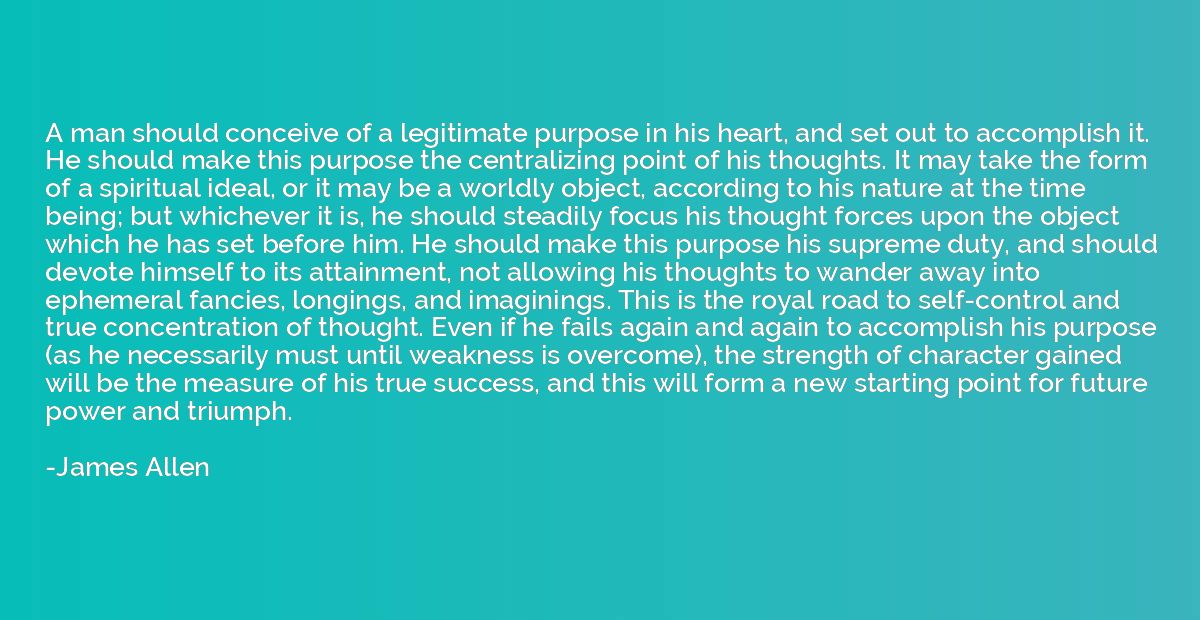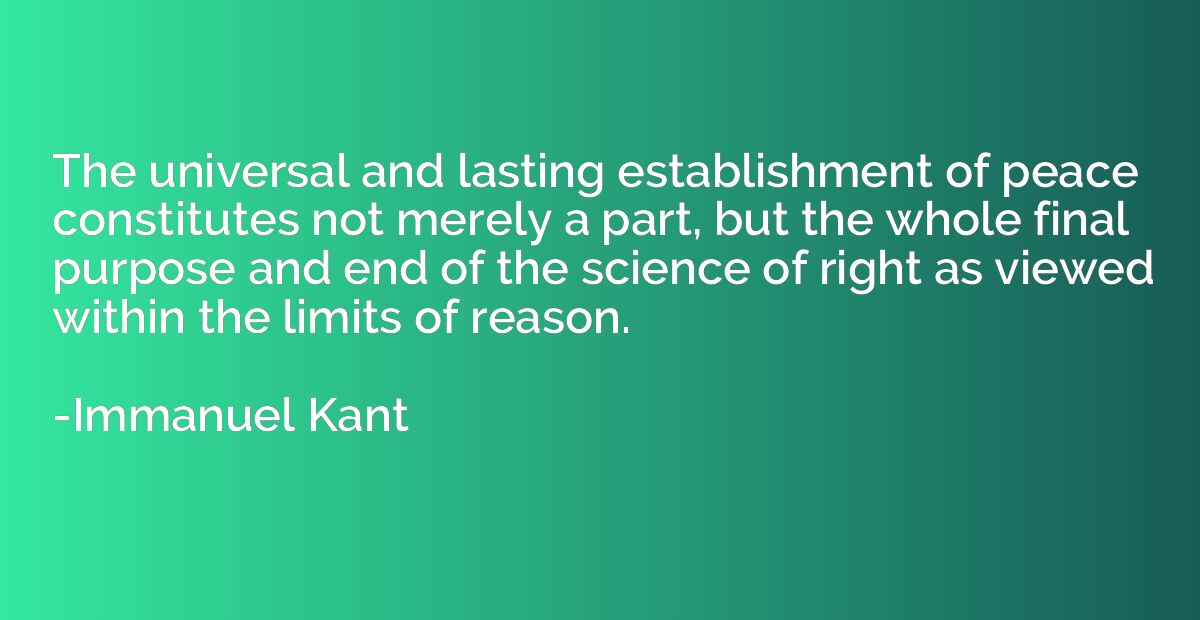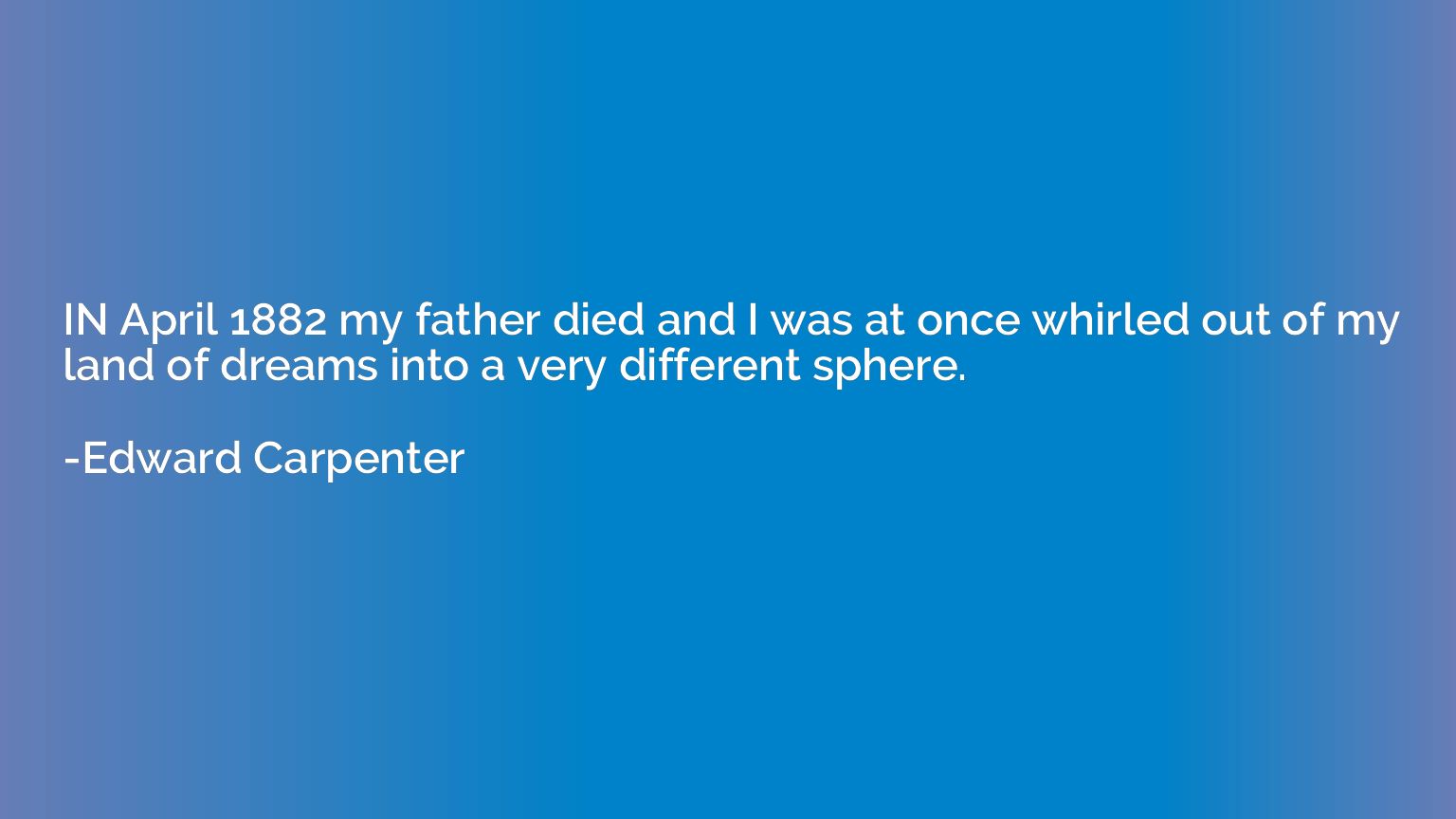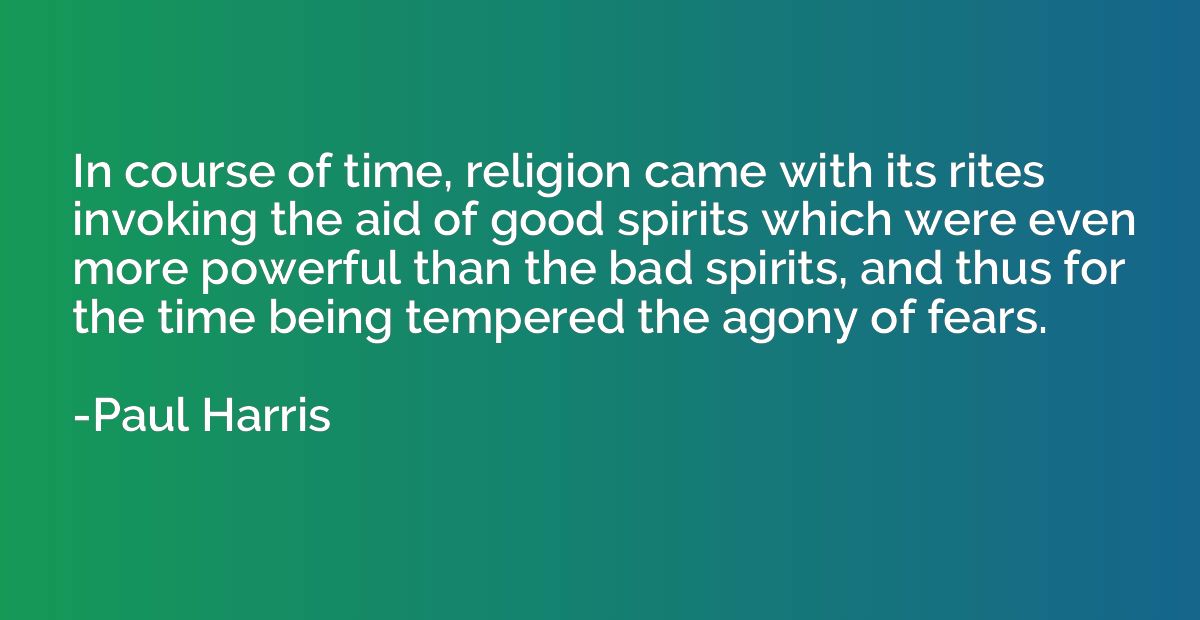Quote by James Allen
A man should conceive of a legitimate purpose in his heart, and set out to accomplish it. He should make this purpose the centralizing point of his thoughts. It may take the form of a spiritual ideal, or it may be a worldly object, according to his nature at the time being; but whichever it is, he should steadily focus his thought forces upon the object which he has set before him. He should make this purpose his supreme duty, and should devote himself to its attainment, not allowing his thoughts to wander away into ephemeral fancies, longings, and imaginings. This is the royal road to self-control and true concentration of thought. Even if he fails again and again to accomplish his purpose (as he necessarily must until weakness is overcome), the strength of character gained will be the measure of his true success, and this will form a new starting point for future power and triumph.

Summary
This quote emphasizes the importance of having a clear and legitimate purpose in life and dedicating oneself wholeheartedly to its attainment. Whether it is a spiritual ideal or a worldly goal, focusing one's thoughts and energies on this purpose is crucial for self-control and concentration. Even if there are failures along the way, the strength of character developed through perseverance becomes the true measure of success. Each setback becomes a new starting point for building greater power and achieving future triumphs. Ultimately, this quote encourages individuals to rely on their purpose to guide and motivate them towards personal fulfillment.
Topics
Purpose
By James Allen














